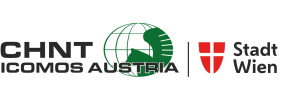Digital Research Data Management
In the last couple of years, the importance of digital research data management (RDM) has increased in all research fields, including the cultural heritage domain, especially archaeology.
Infrastructures for RDM and applying the FAIR and Open Science Principles are key features in modern (digital) Cultural Heritage. Nowadays, computer applications, as well as statistical and computational approaches, constitute a big part of the toolbox of every CH researcher, as they open tremendous possibilities for all research. Several initiatives, such as the German National Research Data Infrastructure (NFDI) – especially NFDI4Objects, use this topic to strengthen new technologies along the individual object biography. This includes comprehending representations of physical objects as research data, relating them to individual contexts, transforming them adequately into the digital space, and curating them according to domain-specific requirements. This leads to a paradigm derived from the FAIRification workflow: capturing, semantic (meta) data modelling and qualifying, applying analysis, sharing the data by visualisation and FAIRified publication, interlinking and integrating data into knowledge graphs.
To support the activities within the before-mentioned paradigm, we, Nadine, Mattis, and Florian, propose a session on “Research Data Management in Cultural Heritage goes Digital—New Technologies along the object biography” that invites digital archaeologists, computational archaeologists, researchers from the natural sciences, computer science, geosciences, and geodesy.
If you want to talk about various aspects of RDM, FAIR and Open Science, we are interested in hearing about new technologies, e.g., applying new documentation methods for data capturing in the CH domain, applying (semantic) data modelling (e.g. CIDOC CRM) for data qualification, applying new scientific analysis in Cultural Heritage, not limited to natural sciences, computer science, geosciences, geodesy, conservation sciences, FAIRification Tools and Research Software and statistical/computational approaches, dealing with legacy data, data sustainability and long-term archiving.
authors:
Florian THIERY – Leibniz Center for Archaeology
Nadine ALPINO – The State Library of Schleswig-Holstein
Mattis THOR STRATEN – Kiel University
ARS3D project/i3mainz/LEIZA, CC BY-SA 4.0
V. Liebler, F. Thiery , F.F. Schäfer, H. Senst, D. Wintergrün, CC BY-SA 4.0
Florian Thiery, CC BY 4.0






